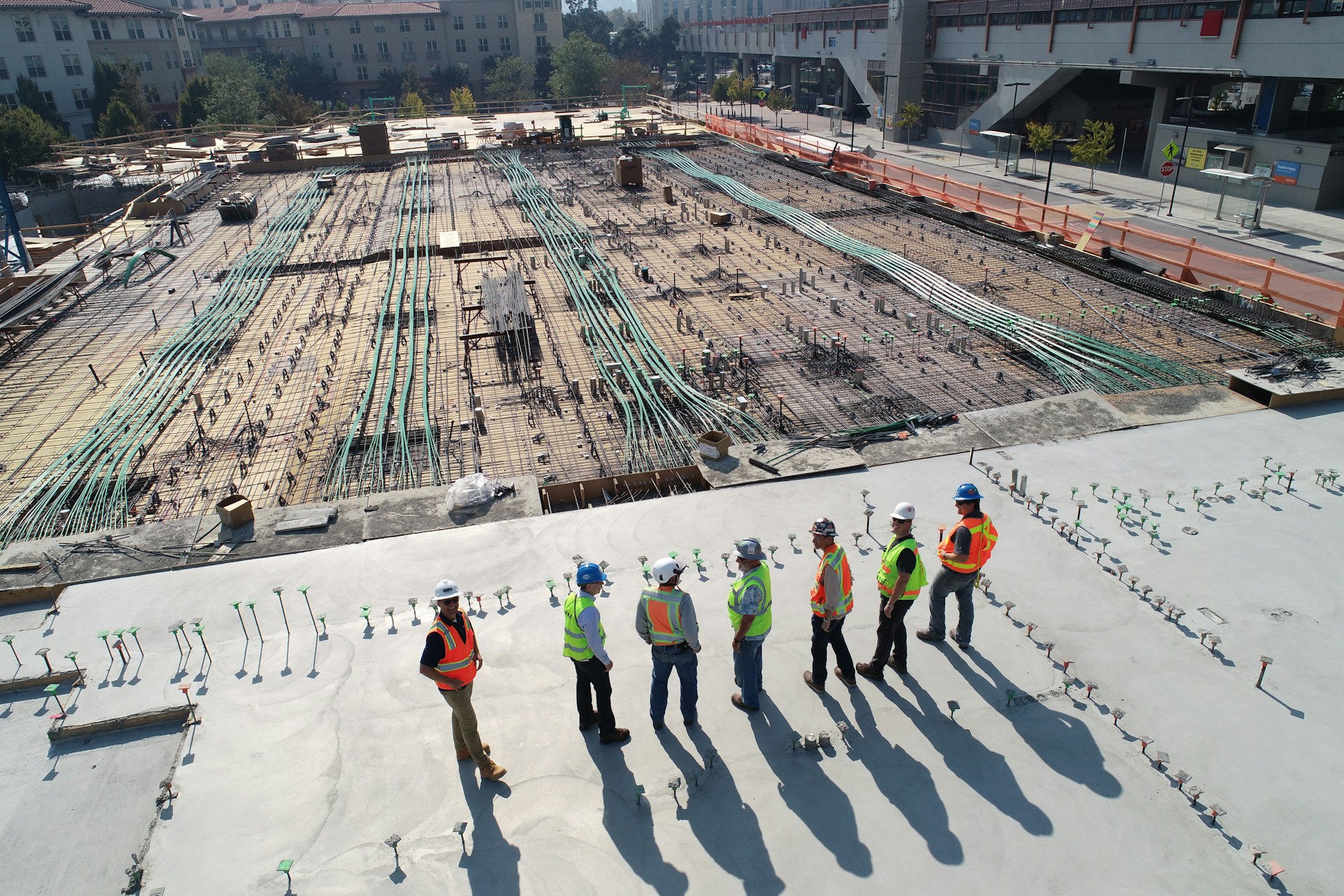Introduction
Construction projects are essential for development, but unauthorized construction can disrupt communities, create safety hazards, and violate building codes. Understanding what Notice for Illegal Construction is and the process for addressing it empowers you to protect your neighborhood and ensure safety standards are met.
What is Illegal Construction?
Illegal construction, also known as unauthorized construction, refers to any building activity conducted without proper permits, licenses, or in violation of established building codes and zoning regulations. Examples include:
a. Building without a valid building permit.
b. Constructing beyond the approved building plans.
c. Exceeding the permissible height or footprint limitations.
d. Using substandard materials or neglecting safety protocols.
Why is it Important to Address Illegal Construction?
Illegal construction can have several negative consequences:
a. Safety Hazards:
Unauthorized construction often overlooks safety measures, posing structural risks and potential fire hazards.
b. Reduced Property Values:
Illegal structures can negatively impact the aesthetics and value of surrounding properties.
c. Strained Infrastructure:
Unauthorized constructions can overload existing infrastructure like sewage systems and roads.
d. Unfair Advantage:
Building without following regulations gives an unfair advantage over those who comply with the legal process.
Identifying Signs of Illegal Construction
1. Red Flags to Watch Out For:
a. Construction Activity Without Visible Permits:
If construction begins without any permits displayed on-site, it might be unauthorized.
b. Deviation from Approved Plans:
If the construction deviates significantly from approved building plans, it could be a violation.
c. Substandard Materials or Unsafe Practices:
Observe if the construction uses poor-quality materials or lacks safety measures like scaffolding or proper protective gear for workers.
d. Unusually Fast Construction Pace:
Rapid construction might indicate shortcuts taken to avoid inspections or meet deadlines.
e. Construction Exceeding Zoning Restrictions:
If the construction exceeds the permitted height, size, or location as per zoning regulations, it’s likely illegal.
2. Reporting Suspected Illegal Construction:
If you suspect illegal construction activity, you can take the following steps:
a. Gather Evidence:
Document the construction with photos and videos, noting dates and any visible violations.
b. Contact Local Authorities:
Report your concerns to the relevant building department, municipality, or zoning authority.
c. Maintain Anonymity:
If you wish to remain anonymous, inquire about anonymous reporting options with local authorities.
Receiving a Notice for Illegal Construction
1. Understanding the Notice:
If you receive a notice for illegal construction on your property, it’s crucial to understand the details and potential consequences. The notice will typically include:
a. Nature of the Violation:
Details of the specific building code violations identified by the authorities.
b. Required Actions:
A clear outline of the steps you need to take to rectify the situation, such as obtaining the necessary permits or demolishing unauthorized structures.
c. Timeframe for Compliance:
The deadline by which you must address the violations.
d. Potential Penalties:
Information about potential fines or legal repercussions for non-compliance.
2. Taking Action:
a. Consult a Lawyer:
It’s highly recommended to consult with a lawyer experienced in construction law to understand your rights and legal options.
b. Assess the Situation:
Evaluate the violations and determine the best course of action, which might involve obtaining permits, modifying the structure, or seeking a variance.
c. Communicate with Authorities:
Maintain open communication with the concerned authorities and respond to the notice within the given timeframe.
d. Negotiate Compliance:
In some cases, depending on the severity of the violation, you might be able to negotiate a compliance plan with the authorities.
Appealing a Notice for Illegal Construction
1. Grounds for Appeal:
There may be legitimate reasons to appeal a notice for illegal construction, such as:
a. Procedural Errors:
If the notice was issued with procedural errors, like not providing proper notice or failing to follow due process.
b. Misinterpretation of Regulations:
If you believe the authorities misinterpreted the building codes or zoning regulations in your case.
c. Unforeseen Circumstances:
In rare cases, unforeseen circumstances like natural disasters might have caused the violation.
d. Minor Violations:
If the violation is minor and doesn’t pose a significant safety hazard, you might be able to appeal for leniency.
2. The Appeal Process:
The specific appeal process can vary depending on your location. Here’s a general outline:
a. Review the Notice:
Carefully read the notice for information on the appeal process, timelines, and any required forms.
b. Consult with a Lawyer:
Engaging a lawyer experienced in construction law is vital for navigating the appeal process and presenting your case effectively.
c. Gather Evidence:
Collect documents and evidence supporting your case, such as revised plans, expert opinions, or documentation of unforeseen circumstances.
d. File the Appeal:
Submit your formal appeal within the specified timeframe, adhering to any required formats and procedures.
e. Attend Hearings:
Be prepared to attend hearings and present your case to the relevant board or commission.
Important Considerations:
1. Time is of the Essence:
Act promptly upon receiving the notice. Missing deadlines can weaken your appeal.
2. Gathering Strong Evidence:
The success of your appeal hinges on presenting a compelling case with documented evidence.
3. Seeking Professional Help:
Consulting a lawyer experienced in construction law can significantly enhance your chances of a successful appeal.
Conclusion
Illegal construction can create problems for communities and individuals. Understanding the signs of unauthorized construction and the procedures for reporting it empowers you to safeguard your neighborhood.
If you receive a notice for illegal construction on your property, don’t panic. Seek legal counsel, understand your rights, and explore options such as compliance, modification, or a potential appeal. Remember, open communication with authorities and a well-prepared case are crucial for a positive outcome.
This guide aims to provide a comprehensive overview of notices for illegal construction. However, it’s not a substitute for seeking professional legal advice specific to your situation and local regulations.
By working collaboratively with authorities and upholding building codes, we can ensure safe and sustainable development for a better tomorrow.
FAQs:
1. What if I suspect illegal construction next door, but I’m not sure?
Advise readers to contact their local building department or code enforcement office to raise their concerns. Anonymous complaints are usually accepted.
2. How long do I have to respond to a notice of illegal construction?
This timeframe will vary depending on your location. Instruct readers to consult the notice itself or contact the issuing authority for specific deadlines.
3. What happens if I ignore a notice of illegal construction?
Ignoring a notice can lead to hefty fines, stop-work orders, and even demolition of the unapproved structure. Encourage readers to take the notice seriously and address the concerns promptly.
4. Can I sue someone for illegal construction that impacts my property?
In some cases, legal action might be necessary. Briefly explain that a lawyer specializing in real estate or property law can advise on the legal options available.
5. I’m building a small shed in my backyard, do I need a permit?
Permit requirements vary based on the size, purpose, and location of the structure. Advise readers to check with their local building department before starting any construction project, no matter how small.




